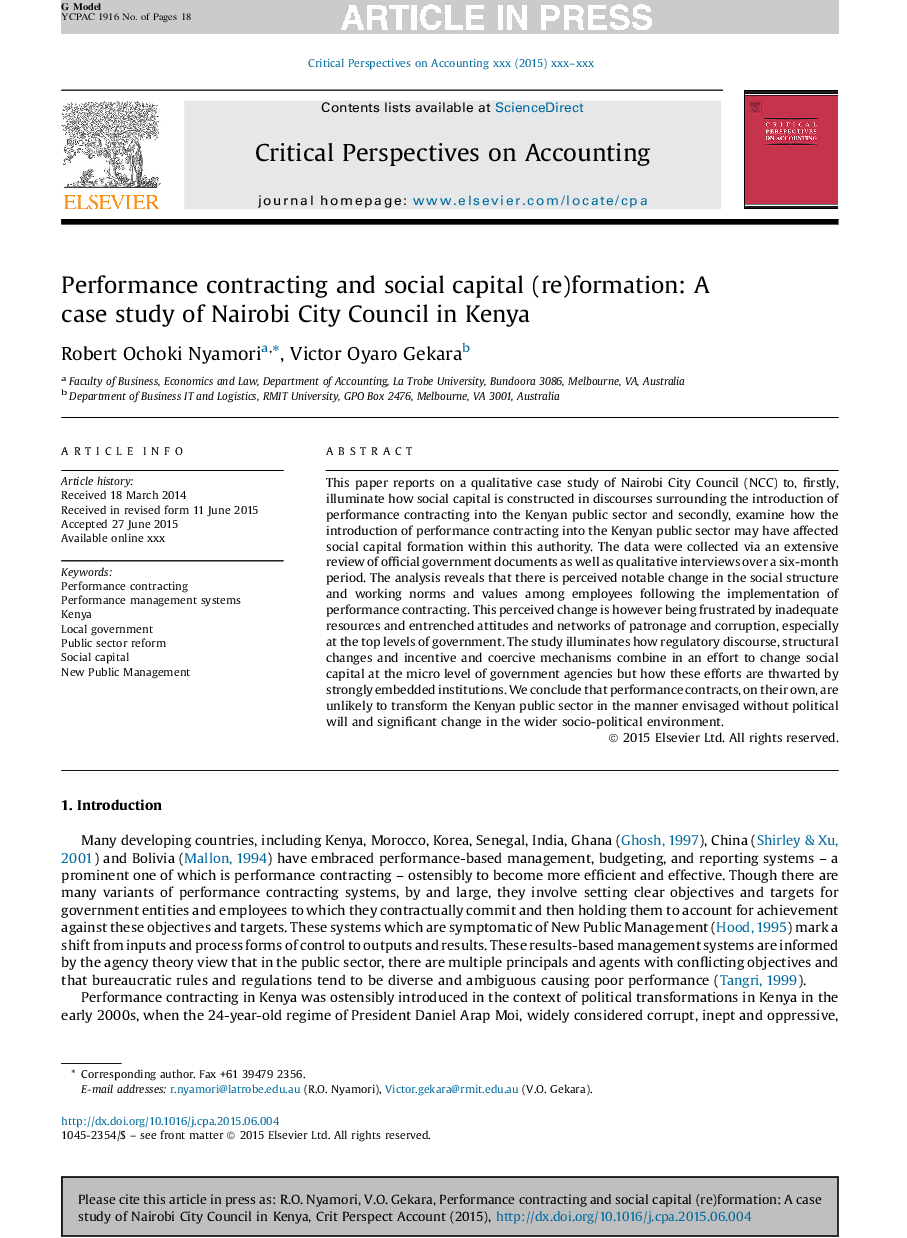| Article ID | Journal | Published Year | Pages | File Type |
|---|---|---|---|---|
| 5106934 | Critical Perspectives on Accounting | 2016 | 18 Pages |
Abstract
This paper reports on a qualitative case study of Nairobi City Council (NCC) to, firstly, illuminate how social capital is constructed in discourses surrounding the introduction of performance contracting into the Kenyan public sector and secondly, examine how the introduction of performance contracting into the Kenyan public sector may have affected social capital formation within this authority. The data were collected via an extensive review of official government documents as well as qualitative interviews over a six-month period. The analysis reveals that there is perceived notable change in the social structure and working norms and values among employees following the implementation of performance contracting. This perceived change is however being frustrated by inadequate resources and entrenched attitudes and networks of patronage and corruption, especially at the top levels of government. The study illuminates how regulatory discourse, structural changes and incentive and coercive mechanisms combine in an effort to change social capital at the micro level of government agencies but how these efforts are thwarted by strongly embedded institutions. We conclude that performance contracts, on their own, are unlikely to transform the Kenyan public sector in the manner envisaged without political will and significant change in the wider socio-political environment.
Keywords
Related Topics
Social Sciences and Humanities
Business, Management and Accounting
Accounting
Authors
Robert Ochoki Nyamori, Victor Oyaro Gekara,
